Music Lessons Engage Your Child’s Heart
Whether to take music lessons is a question on many people's mind. Maybe your child has shown some interest, or maybe you as a parent have had that feeling common to many: "I wish I had continued!" The decision to take music lessons or to put your kids in music lessons is not a small one. Music lessons are not just another subject in school. They have value for character training as well. Not only are they beneficial for the body and the mind, music lessons engage your child's heart.
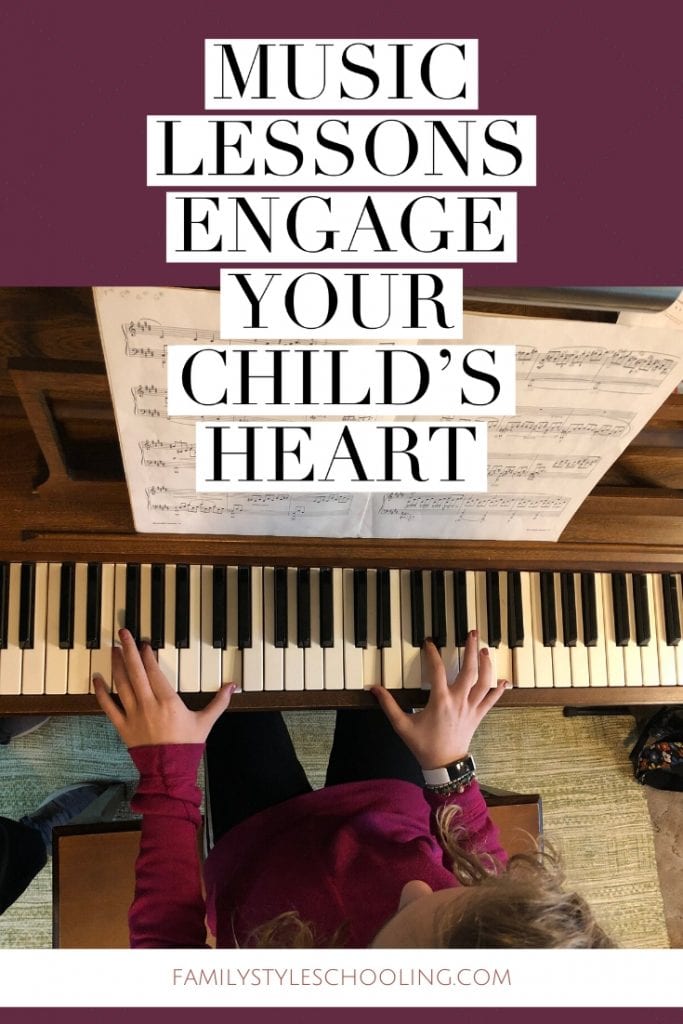
On Music Lessons
Music has been one of the major constants in humanity since the beginning. It will probably always be one of the most popular forms of artistry that has ever existed. There’s a reason for that. It inspires, it encourages, it calms, it even instructs. Something mysterious happens when the sound waves hit our ears. They seem to affect the whole person, from the way we think to our moods and even physical and motor skills.
According to the American Music Therapy Association, “clinical music therapy is the only professional, research-based discipline that actively applies supportive science to the creative, emotional, and energizing experiences of music for health treatment and educational goals.”
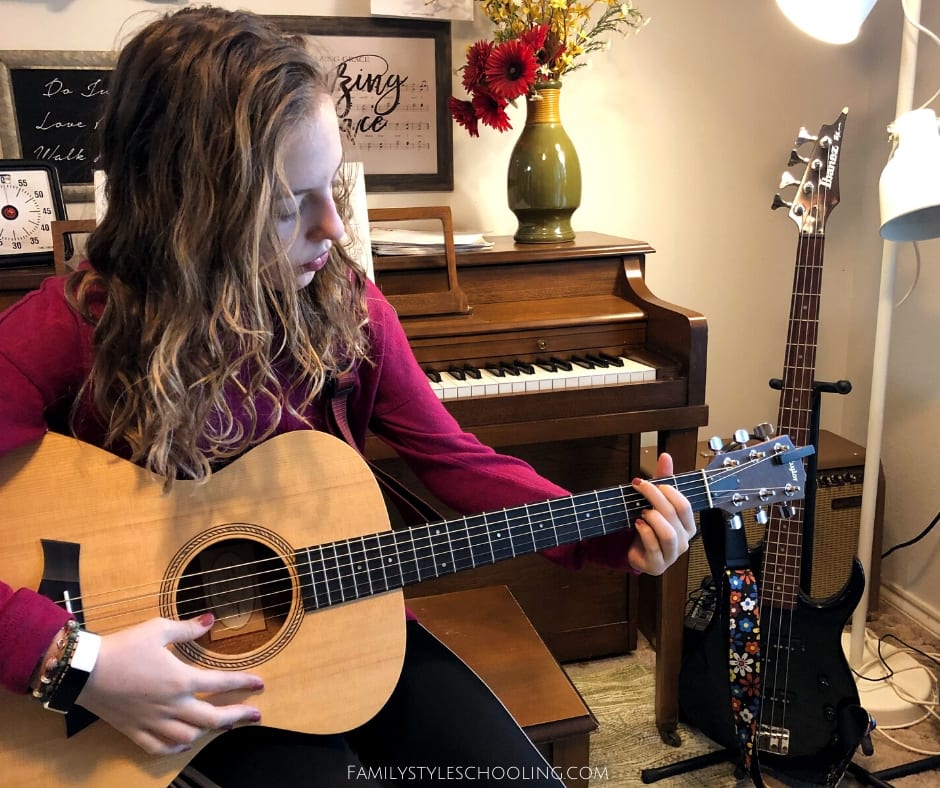
Creative, emotion, and energizing experiences...all from a succession of sounds modulated to please the ear. Sound waves harmonized and ordered; pulses of frequency mathematically related, strategically intersecting to draw out natural human faculties which can make us more whole and less fragmented.
Engaging the Mystery Through Music Lessons
Though a bit hard to describe, everyone knows there are many reasons to engage with music. However, there’s nothing like learning to actually play an instrument.

That kind of engagement is like actually going to Yellowstone National Park rather than simply look at pictures. There is no question that the pictures alone are phenomenal, but those who have experienced the majesty of the park will tell you that the sense of expanse and color cannot be recreated in a picture. It’s a bit of a mystery, but the joy of engaging in such a way is without parallel.

It’s a kind of “whole person” experience. Engaging music through lessons is that way. Learning to play an instrument includes not only physical and mental activity, but emotional activity and what I’ll call “heart” activity as well. Understandably, the thought of music lessons may be scary, but that just proves the point. Learning an instrument is very holistic, and a music student must be ready to engage the mystery of music with their whole selves.
Training the Body and Mind
Of all the kinds of activities involved in learning an instrument, these are the most prominent. Learning to play an instrument is the simultaneous engagement of senses, muscles and intellect. It helps improve concentration and coordination.
Dexterity doesn’t come to us naturally. We have a natural capacity for dexterity but it must be trained. Music lessons are dexterity lessons through timing and muscle memory training.
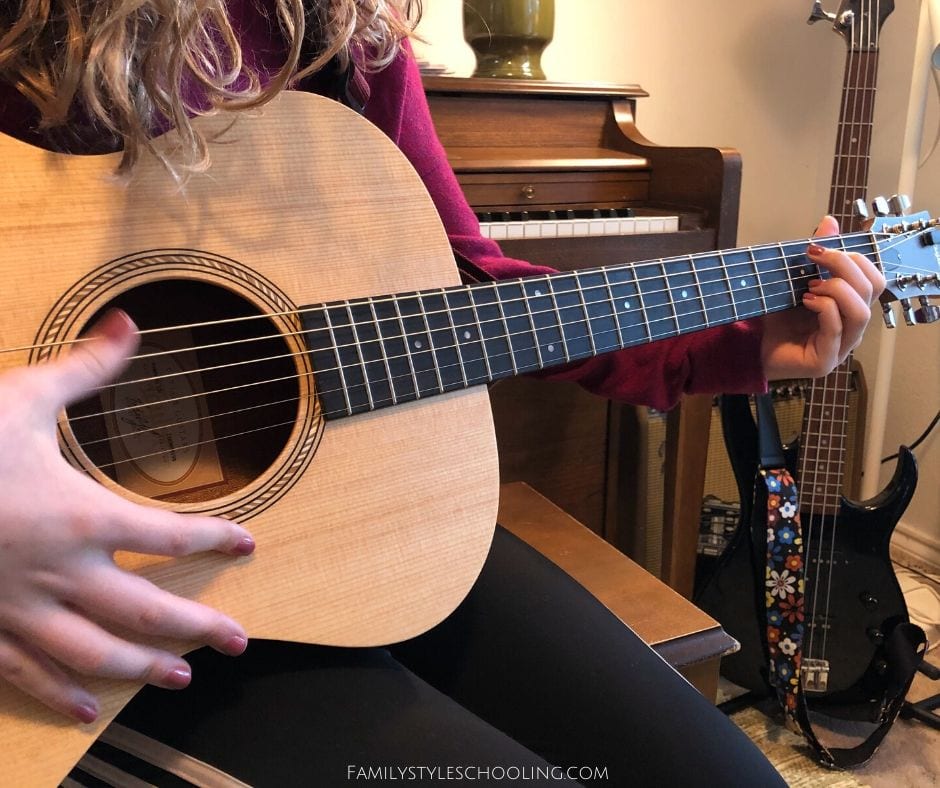
The mind learns to slow down and observe, to concentrate and process a lot of information at a time. Music lessons help develop speech and other cognitive skills as music is often like a foreign language. Even Plato maintained that he “would teach children music, physics and philosophy; but most importantly music, for the patterns in music and all the arts are the keys to learning.”
The Royal Conservatory of Music agrees that “music study requires a high degree of precision in auditory processing: being in tune is not good enough. This means that musically trained children are better able to distinguish subtle details of speech, leading to improved reading, better comprehension, and also a greater ability to interpret what other people - children and adults - are really saying.”
Such coordination of mind and body results in tremendous benefits. Watch a short yet fascinating video that explains the research in which subjects exposed to music lessons showed enhancements to multiple areas of the brain.
Other amazing studies have been done showing how language skills, math skills, and reading skills are all developed in this pursuit. Even if it were only the body and mind being developed simultaneously, it would be enough to pursue music lessons. But that’s not all.
Music Lessons Encourage Being Present
Emotional and heart activity in musical education are often overlooked, yet often the most important of all elements in such holistic training. Learning an instrument is hard work. As a music teacher, I am constantly navigating emotional and heart issues with my students. Doing hard things is such an amazing catalyst for maturity.
They must learn to be present and emotionally focused on the task, steadying themselves to keep going. Learning any new thing is challenging, but when your fingers and hands do not do what you want them to do, it is frustrating. These moments are valuable. It’s often the reason students quit, but I say it’s an opportunity to learn a life-lesson.
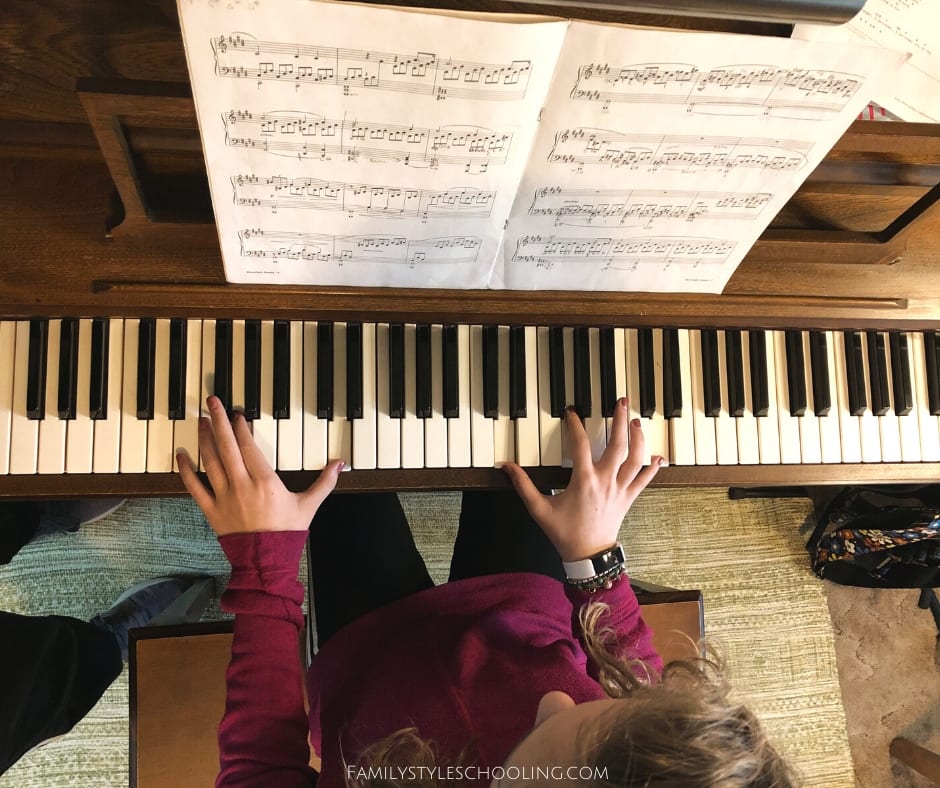
What do you do in life when you are frustrated and want to give up? It’s how you respond to this common feeling that matters. Learning an instrument is a chance to practice more than just scales. It’s a chance to practice facing difficult emotions.
I should point out here that having good people around to emotionally support you as a student is vital. That may be needless to say, but it’s good for others around you to know that what they hear from your instrument in the next room, regardless of how it sounds, is only a small part of the story.
They should remember that what they hear is like looking at a picture of Yellowstone. The student struggles to get to know the music and the instrument as a hiker struggles to know the park experientially. Submitting to this kind of character training is a big step, and one best done within a loving community.
Engaging the Heart
In addition, taking music lessons is a chance for the heart to be nurtured. Along with self-control and patience, music has the capacity to nurture such things as joy, peace, faithfulness and even gentleness. Students must be patient with themselves and see the value of perseverance. Generally speaking, the heart doesn’t naturally respond in these ways and music lessons are a wonderful opportunity to safely develop these qualities.
Music Lessons Aren't Just Another Subject
Music lessons are not just another subject to cover in school. They are life lessons, training students to answer the question, “How should I live my life?”
A Christian music teacher has the amazing opportunity to listen well and say, “Let me help you love the Great Musician and play His song well. Let’s take your instrument now and learn to adorn the air with the life of a beautifully played song - one that conforms to the beautiful boundaries set by our wonderful Creator.”
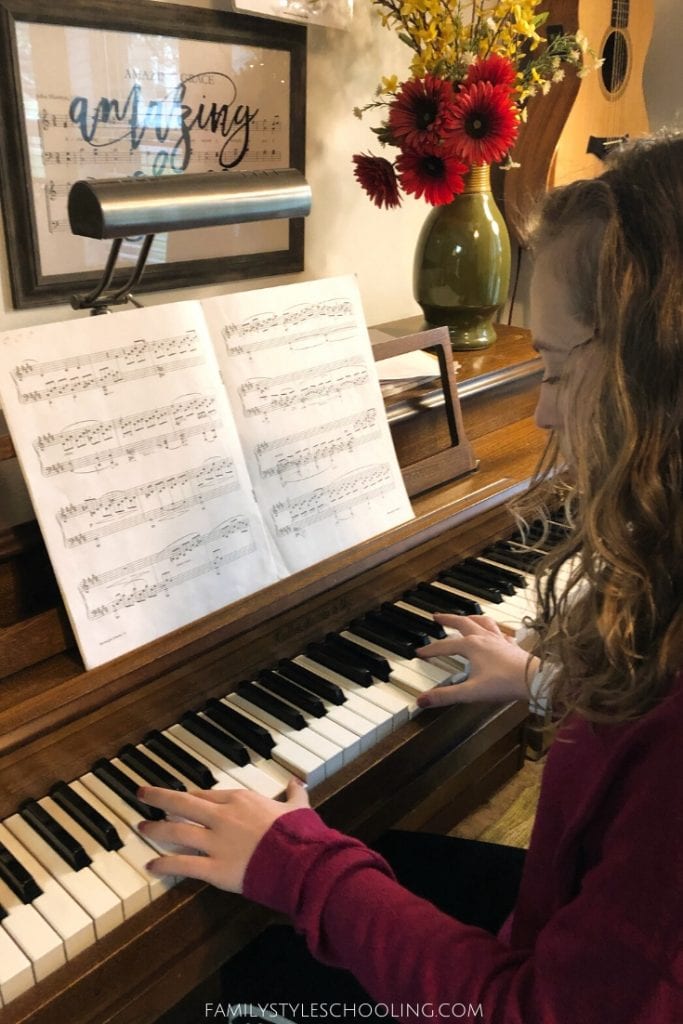
Unity and harmony was formed out of the chaos. Students of music have a chance to form unified and harmonious sounds with an instrument. Following the example of the Creator, beauty can come together to bless those who hear.
Body, mind, emotions and heart engage the mystery of music to inspire and encourage, humanize and unify those around us.


